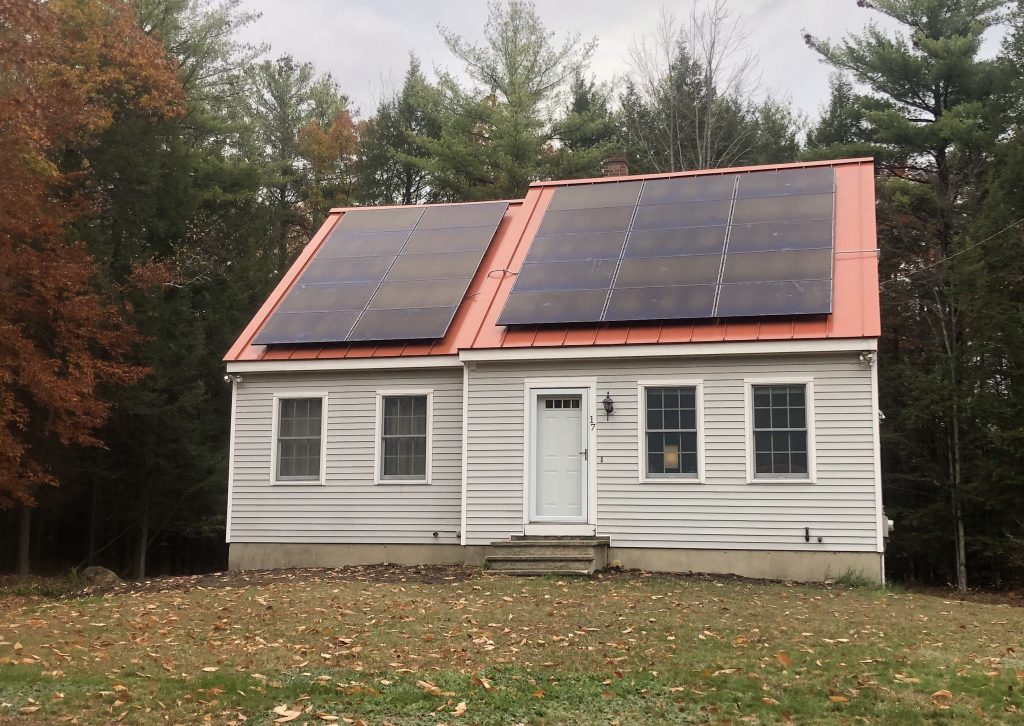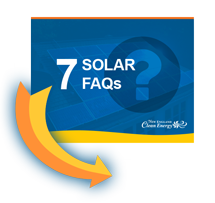From Portsmouth to Keene to the White Mountains – New Hampshire’s vibrant land, cities, and bodies of water are prime spots for installing solar panels. The Granite States’ solar industry has grown to an eye opening degree over the past decade. And while it doesn’t have the incentive programs some other states have, existing benefits such as net metering and the federal tax credit have helped to make solar more affordable than many people realize. In short, the many that have contributed to solar’s growth in the granite state have learned first hand that solar is a great investment. Read on to learn more about New Hampshire solar.
With a quick google search you’ll see pricing for solar are all over the place – from low to high. But they are all generally stated as dollars per watt. While that’s okay, I find the unit “watt” hard to understand given the product you’re actually buying.
In our previous blog post “The Cost of Solar in Rhode Island” we discussed how doing that is like measuring the cost of a car in dollars per horsepower. It doesn’t mean all that much in regard to its utility. Instead, I’d suggest you want to focus on kW hours. After all, that’s what your system produces, what you consume, and what the utility charges you for. So why wouldn’t you measure the cost of your system that way too? 
Let’s use a real life example:
We priced a potential New Hampshire solar customer within the last month or so that was using around 8,000 kW hours every year. At New Hampshire’s electricity rate of 20.24 cents per kilowatt hour that means they’re paying around $1,718 per year to the utility. But, with the electricity inflation rate increasing 2.7% every year, that number owed to the utility is sure to increase.
We proposed building a 8,140 watt system that would generate a projected 9,245 kW hours in the first year.
Let’s factor in incentives (federal and state in this case) and the full 25 years of solar power production. Our proposal estimates that the starting cost for this system would be $32,494. By factoring in the 26% federal tax credit we’re reducing that by $8,448. So the actual cost of your system would now be sitting at $24,046. In return, the buyer will get 231,125 kW hours of electricity over those 25 years (factoring in a standard panels’ degradation rate over that time period).
So let’s pull out a calculator. For New Hampshire solar it’s Twenty-four thousand and forty-six divided by that number of kW hours gets you a cost per kW hour of about 9 cents each. Meaning, instead of today’s 20.24 cents per kilowatt hour the customer is paying to the utility currently, they can now pay only 9 cents per kW hour. That’s nearly 60% less. And better still, that 9 cents will not increase. It is fixed. Imagine for a moment if you could pre-buy all of your energy needs at a 60% discount.
The Upfront Cost is High At First, We Get It
Yes, we understand. Looking at that $24,046 for the solar installation can seem a little bit daunting, even if you will save 60% per kW hour on day one (to say nothing about what inflation is going to do to the rate from your utility). But we want to remind you how quickly your system will pay you back. If you look at the table above, this proposed system we’ve been discussing models out to break even early in the ninth year. After that your system’s kW hour production is pure savings.
But you might move you say? Well, national reports from companies like Zillow report that a home with solar increases in value by an average of 4.1%. Zillow says the average home in NH costs $385,000. The plain fact is if a buyer could buy your home with solar and its tiny electric bill or an identical one with a big old bill like what this homeowner had before of course they would opt for the smaller bill. Wouldn’t you?
And if an upfront purchase isn’t for you; there are solar loans available to help finance your system.
The Most Important Part: Quality over Quantity
Although we could talk about numbers and prices all day, one of the most essential issues is assessing the quality of what you are buying. Your solar system will be on your roof, exposed to the worst that New England can dish out. The quality of the equipment is important, but perhaps more importantly is the quality of the installation job.
For example, while a lot of our competitors will buy a large pile of panels and sell them until they’re all gone (for perhaps a cheaper price) we don’t stock inventory. Instead, the products we sell are the most current. From Generac to LG, we make sure our customers’ needs are taken care of before we put the order in.
And we work to make every installation we do first rate. Our Master Electrician who runs our installation crews and subcontractors is a stickler for detail. And he is our second longest tenured employee as well. Quality is his job one because that is perhaps the most critical aspect of a system that will last for years and years..
That’s why we ask all our customers to truly seek out the company that can do the best possible job for them.
A Final Recommendation for Our Solar Customers in New Hampshire
A system like the one we have outlined above will last up to 25 years or more and should save you an estimated $63,838 in electricity savings over that lifetime. Heck, it could easily be longer. That’s a lot of real money, real savings.



 Download our 7 FAQs
Download our 7 FAQs


No comments yet. You should be kind and add one!
The comments are closed.